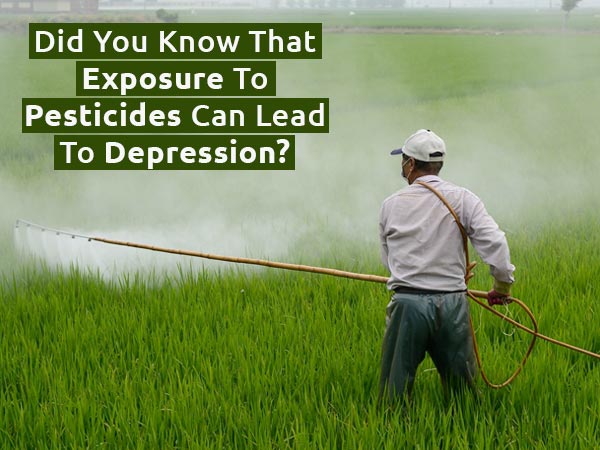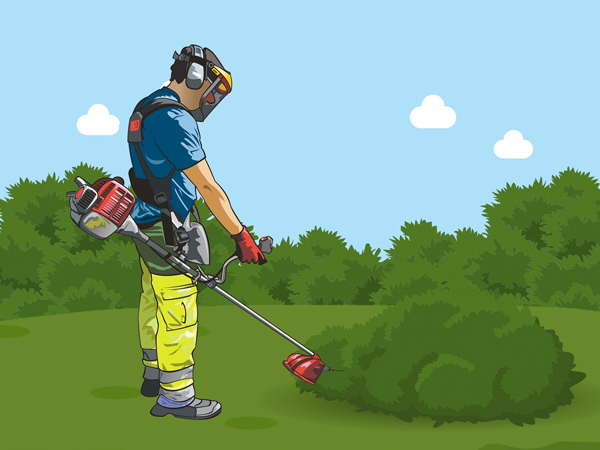Just In
- 2 hrs ago

- 3 hrs ago

- 4 hrs ago

- 12 hrs ago

Don't Miss
- Finance
 1:2 Stock Split, Dividend 100%, Net Soars 52.56%: Engineering Stock Soars 1576% In 3-Yrs
1:2 Stock Split, Dividend 100%, Net Soars 52.56%: Engineering Stock Soars 1576% In 3-Yrs - News
 Protests Erupt After 24-Year-Old Neha's Murder In BVB College Campus In Hubballi
Protests Erupt After 24-Year-Old Neha's Murder In BVB College Campus In Hubballi - Sports
 WWE Raw: Battle Royal announced to determine new Women’s World Champion
WWE Raw: Battle Royal announced to determine new Women’s World Champion - Movies
 Metro In Dino: When Ananya Panday Warns Sara Ali Khan Not To Touch Aditya Roy Kapur As She Pairs Up With Him
Metro In Dino: When Ananya Panday Warns Sara Ali Khan Not To Touch Aditya Roy Kapur As She Pairs Up With Him - Technology
 Garena Free Fire Max Redeem Codes for April 20, 2024: Get Access to the Latest In-game Loot
Garena Free Fire Max Redeem Codes for April 20, 2024: Get Access to the Latest In-game Loot - Automobiles
 Ford Mustang 60th Anniversary Package – Limited To Just 1,965 Units
Ford Mustang 60th Anniversary Package – Limited To Just 1,965 Units - Education
 Exam Pressure Does Not Exist; Studying Punctually is Crucial; Says Aditi, the PSEB 2024 Topper
Exam Pressure Does Not Exist; Studying Punctually is Crucial; Says Aditi, the PSEB 2024 Topper - Travel
 Journey From Delhi To Ooty: Top Transport Options And Attractions
Journey From Delhi To Ooty: Top Transport Options And Attractions
Did You Know That Exposure To Pesticides Can Lead To Depression?
Pesticides are toxic chemical substances targeted mainly on pests to protect crops from their harmful effects and to promote plant growth. Unfortunately, exposure to pesticides by humans can cause several health effects and chronic diseases.

What Are Pesticides?
Pesticides are chemical compounds which are used to kill, control, or repel certain harmful animals or plants that are treated as pests. They include insecticides for controlling insects, herbicides for destroying unwanted vegetation, fungicides for controlling the fungus, disinfectant for killing a wide range of microorganisms, and other repellant compounds to control mice and rats.
Pesticides are potentially toxic to pests and also harm humans if not used or disposed of properly.
Exposure To Pesticides
Farmers or farmworkers who spend most of their time in the treatment of crops, grains, plants are at higher risk of getting exposed to pesticides [1]. Workers of forestry and domestic pest control are at risk through the treatment of boat hulls, wood with preservatives, and the anti-parasitic preparations. People also get exposed to pesticides when it is sprayed on parks, playgrounds, and pavements. Many people usually buy it for garden use and thus, puts the food they grow at risk as well [2].
Consequently, pesticides are useful in controlling malaria, dengue, and other vector diseases but te exposure to it, for a short or long term, can cause several health issues. They can affect the reproductive system, cause neurological problems, and can also lead to cancer.
Pesticide exposure is also associated with a decrease in neurobehavioral performance and nerve function abnormalities [9]. Exposure to moderate or small levels of pesticides is also neurotoxic.
According to a study published in the International Journal of Hygiene and Environmental Health, children of age 13-19 who are living in agricultural areas where pesticides are used in large amount are likely to suffer from brain disorders.

Effects Of Pesticides On The Brain
1. Cause depression
Several pieces of evidence connect depression to pesticide exposure. According to a study, out of 567 recruited farmers between 1998-2000 in France, 83 farmers had reported symptoms of depression. WHO estimates that among 2000, depression ranked fourth for the causes of disability as it affects mental, physical, and social functioning that ultimately leads to cognitive dysfunction.
A report generated based on data from 21000 pesticide applicators suggest that people who have used different classes of pesticides or have a pesticide poisoning incident had reported higher rates of mental illness and depression [3].
2. Affect the teenage brain
As per the report published in Proceedings of the National Academy of Sciences, the cerebral cortex of 20 children has outgrown in their mother's womb due to exposure to chlorpyrifos, a kind of pesticide used on crops, buildings, animals including worms and insects. Another published study shows that pesticide-exposed children are more likely to suffer from mental disorders, autism, attention deficit, psychomotor delays, and other neurological disorders [4].
3. Cause sensory and motor dysfunction
In a study, it was found that farmers who are exposed to multiple pesticides have decreased sensitivity along with multiple signs of peripheral neuropathy [7].
4. Cause Parkinson disease
Pesticide exposure can increase the risk of Parkinson disease. Studies suggest that there's a connection between Parkinson disease risk and residing in rural areas, doing farming as an occupation, and drinking water from the local water sources [8].
5. Impact on other body parts
Apart from hampering the brain, pesticides also affect other parts of the body. They cause lung dysfunction, severe liver damage, birth defects, suppress the immune system, and other acute toxicity like allergies, eye and skin irritation, vomiting, headache, nausea, and weakness [2].
Prevention Tips Against Pesticides
- Buy organic foods and vegetables [10].
- Wash vegetables and fruits before consumption.
- Grow vegetables at your garden.
- Avoid commercial pest control methods.
- Wash feet before entering the house to avoid pesticides residue at home.
Alternatives To Pesticides
Pesticides are harmful for the environment and public health. Though they are effective for the plants, they are regarded as as toxins. Fortunately, there are other alternatives to pesticides which are non-hazardous and control the pest populations. The alternatives are
- crop rotation,
- diversified planting,
- biodegradable pest control pesticides, and
- trap plant method.
-
 healthExclusive: Expert Shares Impact of Heat Waves on Infectious Disease Transmission
healthExclusive: Expert Shares Impact of Heat Waves on Infectious Disease Transmission -
 healthExclusive: Doctor Shares Why Women Should Prioritize Health, Key Resolutions For Well-being And Vitality
healthExclusive: Doctor Shares Why Women Should Prioritize Health, Key Resolutions For Well-being And Vitality -
 healthEverything You Need To Know About Deadly H5N1 Virus That Can Be 100 Times Worse That COVID-19 Pandemic
healthEverything You Need To Know About Deadly H5N1 Virus That Can Be 100 Times Worse That COVID-19 Pandemic -
 astrologyWorld Health Day 2024: Holistic Health Tips For 12 Zodiac Signs As Per Astrology
astrologyWorld Health Day 2024: Holistic Health Tips For 12 Zodiac Signs As Per Astrology -
 healthInstagram Claims Grapes Are Contaminated With Pesticides, Methods To Clean It Properly Before Consuming Them
healthInstagram Claims Grapes Are Contaminated With Pesticides, Methods To Clean It Properly Before Consuming Them -
 healthDutch Woman Opts For Euthanasia In May Not Due To Physical Illness, Know How To Build Mental Resiliance
healthDutch Woman Opts For Euthanasia In May Not Due To Physical Illness, Know How To Build Mental Resiliance -
 health20-Year-Old Man In China Suffers From Delusional Love Disorder, Know What Is Erotomania And Its Signs
health20-Year-Old Man In China Suffers From Delusional Love Disorder, Know What Is Erotomania And Its Signs -
 healthExclusive: On World Autism Day 2024, Let Us Empower Parents With Positive Strategies For Autism Care
healthExclusive: On World Autism Day 2024, Let Us Empower Parents With Positive Strategies For Autism Care -
 health10 Year Old Girl Dies After Eating Cake, How To Identify A Bad Cake Online, What Health Risks It Can Pose
health10 Year Old Girl Dies After Eating Cake, How To Identify A Bad Cake Online, What Health Risks It Can Pose -
 healthLove To Cuddle? These Are The 10 Amazing Health Benefits Of Cuddling Which Will Make You Want It More
healthLove To Cuddle? These Are The 10 Amazing Health Benefits Of Cuddling Which Will Make You Want It More -
 astrologyApril 2024 Health Horoscope: Know How This Month Will Affect Zodiac Signs In Terms Of Wellness
astrologyApril 2024 Health Horoscope: Know How This Month Will Affect Zodiac Signs In Terms Of Wellness -
 healthWhat Is iPhone Finger? Here's Why You Need To Worry About Its Negative Effects
healthWhat Is iPhone Finger? Here's Why You Need To Worry About Its Negative Effects


 Click it and Unblock the Notifications
Click it and Unblock the Notifications



